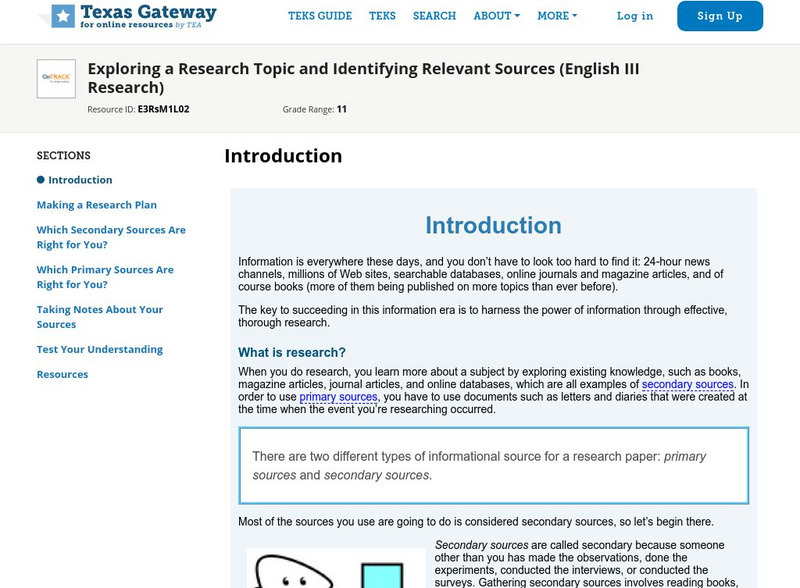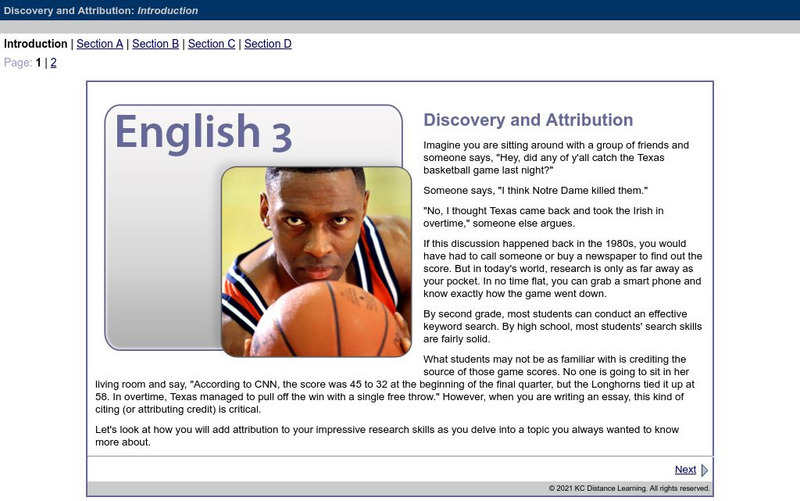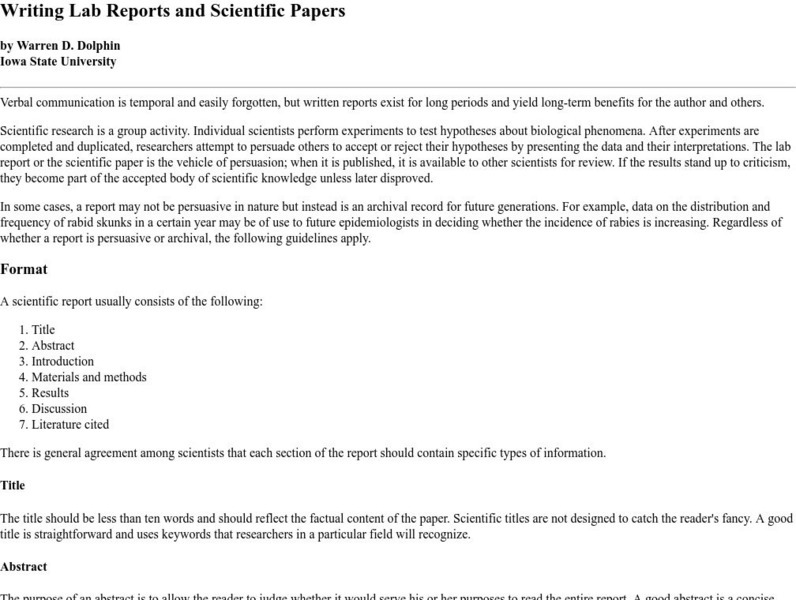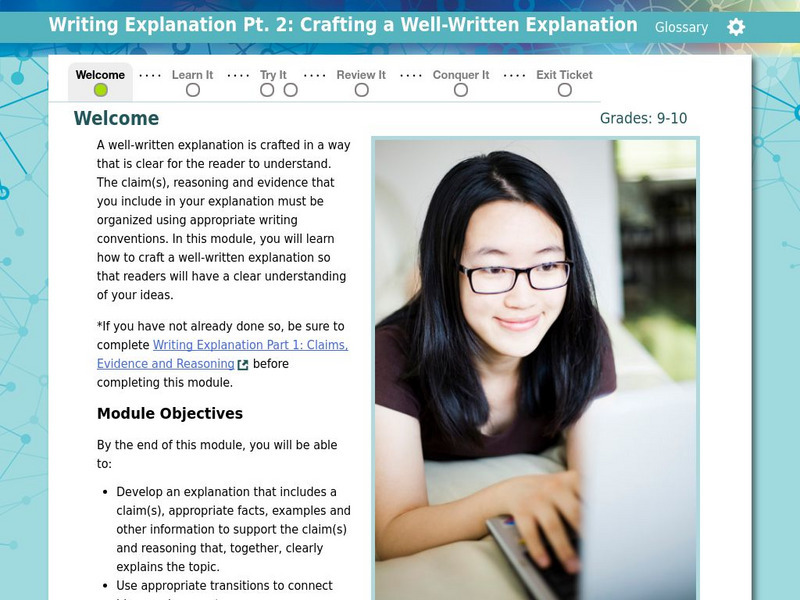Stanford University
Stanford History Education Group: Factory Life
[Free Registration/Login Required] A lesson to help students work in discussion groups to evaluate data and resources when the information is contrasting over the same event. Discussion groups Particular to this lesson explore primary...
Colorado State University
Csu Writing Guides: Peer Review
A detailed account of how to improve one's writing through the process of the peer review. Includes basic information and content-specific additions, such as peer review guidelines, questions, and online resources.
Sophia Learning
Sophia: Research Sources: Mining Bibliographies
This slideshow lesson focuses on mining bibliographies, or searching other bibliography pages on your topic to locate potential sources for your own research. It discusses the pros and cons of mining bibliographies.
Sophia Learning
Sophia: Research Sources: Periodicals
This slideshow lesson focuses on the use of periodicals as research sources; it discusses the pros of using periodicals as organizational aids and in research of current events and also the cons of periodical's lack of depth and possible...
Annenberg Foundation
Annenberg Learner: Interactive Forum
Read two poems and follow the prompts to interpret them using four approaches: reader response, inquiry, cultural studies, and critical pedagogy. Use the prompts to guide personal reflection, launch a lesson with students, or join an...
Houghton Mifflin Harcourt
Holt, Rinehart and Winston: Writer's Model: Historical Research Paper
This eleven-page research paper provides an example of a historical research project. Clicking on the "Writer's Guide" link in the upper right-hand corner of the page enables the user to get tips, directions, and explanations on the essay.
Georgia Department of Education
Ga Virtual Learning: Nonfiction and Reseach: "Choosing Nonfiction Sources" [Pdf]
This is the 20-page PDF "Choosing Nonfiction Sources." It provides informatation about various types of nonfiction: primary and secondary sources, reference works, databases, newspapers and periodicals, and nonfiction books; it also...
Polk Brothers Foundation Center for Urban Education at DePaul University
De Paul University: Center for Urban Education: Prose Constructed Response Organizer [Pdf]
This Center for Urban Education resource provides a downloadable graphic organizer designed for preparing a constructed response that must compare three sources: two articles and a video.
Polk Brothers Foundation Center for Urban Education at DePaul University
Depaul University: Center for Urban Education: Compare Articles [Pdf]
This Center for Urban Education resource provides a downloadable graphic organizer designed for comparing and contrasting nonfiction articles.
Polk Brothers Foundation Center for Urban Education at DePaul University
De Paul University: Center for Urban Education: Compare Central Idea Across Mult Texts [Pdf]
This Center for Urban Education resource provides a downloadable graphic organizer designed for comparing a central idea across multiple texts.
University of Toronto (Canada)
University of Toronto: Engineering: Types of Documents
This site offers links to types of documents used to communicate information in the workplace. They include short reports, proposals, memos, case studies, and lab reports.
Texas Education Agency
Texas Gateway: Determining Validity and Reliability of Sources
This lesson will help students decide which sources are valid and reliable for supporting a thesis. It discusses how to evaluate books, articles, websites, and more.
Texas Education Agency
Texas Gateway: Exploring a Research Topic and Identifying Relevant Sources
In this lesson, students learn how to plan their research, find relevant primary and secondary sources, and use those sources in your research papers. W.11-12.8 Sources/Integrate/Cite
Department of Defense
Do Dea: Discovery and Attribution
The research process can be daunting, but it doesn't have to be overwhelming! After you complete this self-guided unit, you will be well prepared to write a research paper. You will learn how to choose a topic, evaluate the reliability...
McGraw Hill
Writing Lab Reports and Scientific Papers
This site list and describes the seven pieces necessary for a lab report.
Thinkport Education
Thinkport: Citing Textual Evidence: Changing Oceans
Learn how to cite evidence to support ideas presented in a science article about oceans.
Thinkport Education
Thinkport: Using Multiple Sources: Sea Turtle Populations
In this science-themed literacy lesson, students learn how to identify the central idea and key details in an article about sea turtles.
Other
Using Sources Effectively
This site provides hints and guidelines on how to effectively use sources.
PBS
Pbs Learning Media: The Zombie Autopsies: Publish or Perish, for Real
An excellent activity where students are guided in how to write an article for publication in a scientific journal. Includes downloadable activity and student handout.
ReadWriteThink
Read Write Think: Strategy Guide: Peer Review
This strategy guide explains how you can employ peer review in your classroom, guiding students as they offer each other constructive feedback to improve their writing and communication skills.
PBS
Pbs Learning Media: Straight to the Source: Primary and Secondary Sources
Learners discover what primary and secondary sources are and how to use them in this lesson from PBS Wisconsin Education. They watch video clips from the documentary "Wisconsin Hometown Stories: Neenah-Menasha," identifying the primary...
Thinkport Education
Thinkport: Writing Explanation Pt. 2: Crafting a Well Written Explanation
In this module, students will write an explanation about climate change based on the claims, evidence and reasoning they identified in the Writing Explanation Part 1: Claims, Evidence and Reasoning.
Thinkport Education
Thinkport: Writing Explanation Part 3: Building an Argument
In this module, students will explore how claims, counterclaims, evidence and reasoning are used to write an effective argument. Students will read texts that discuss the climate change debate.
Thinkport Education
Thinkport: Writing Explanation Part 1: Claims, Evidence and Reasoning
In this module, students will explore how claims, evidence and reasoning are used to write an effective explanation. Students will read an article that addresses the question of whether climate change is now confirmed after record high...




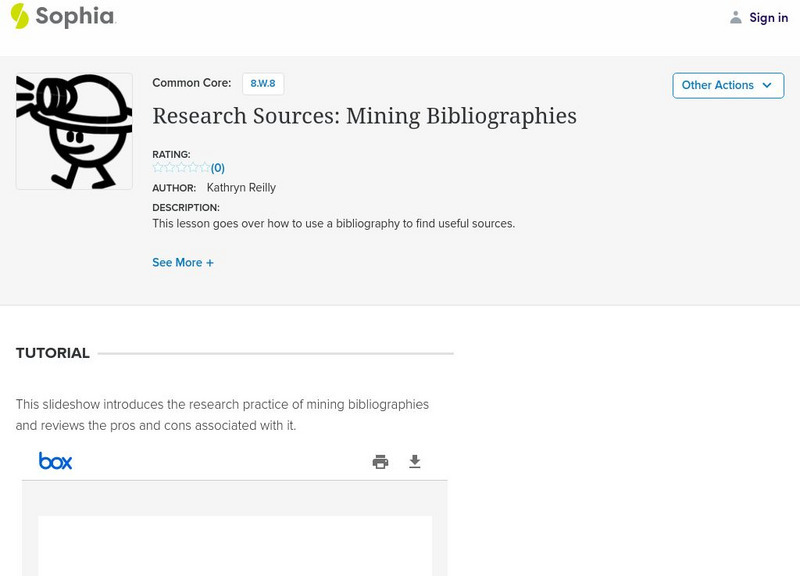



![Ga Virtual Learning: Nonfiction and Reseach: "Choosing Nonfiction Sources" [Pdf] Unit Plan Ga Virtual Learning: Nonfiction and Reseach: "Choosing Nonfiction Sources" [Pdf] Unit Plan](https://d15y2dacu3jp90.cloudfront.net/images/attachment_defaults/resource/large/FPO-knovation.png)

